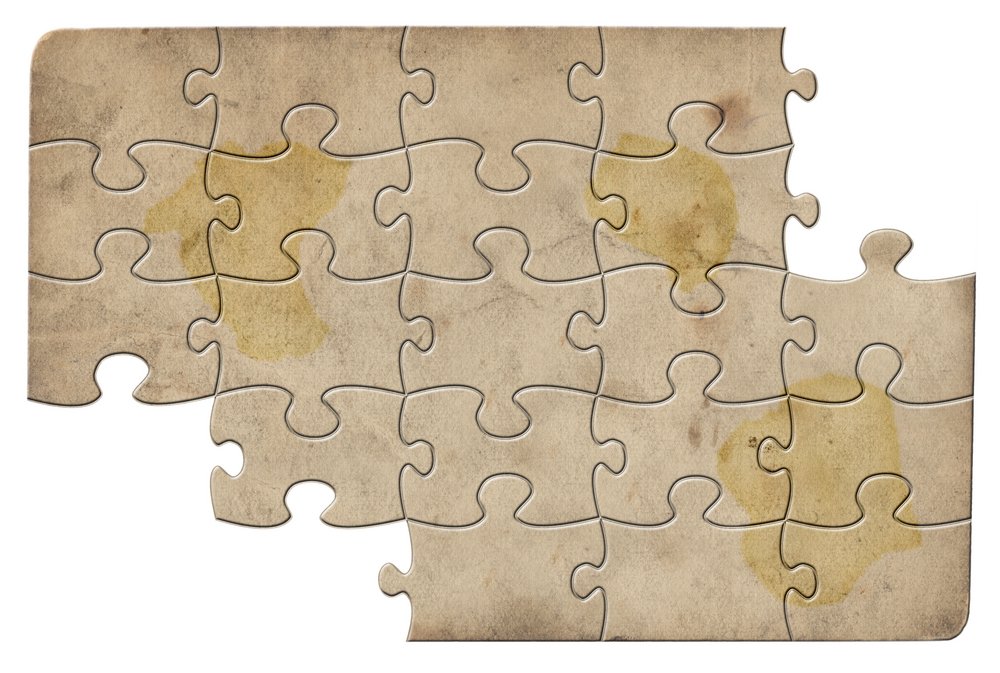Last Updated on January 25, 2024 by Gamesver Team and JC Franco

Are you trying to justify hours of building a toy that comes intentionally broken? Doesn’t that seem absurd to you? It’s great to have a fun hobby. We all need one. But when your hobby has turned into an obsession and distracts you from daily life, then you need to reconsider what you’re doing.
Building jigsaw puzzles may seem innocent, a fun child-like activity that we grow out of (or not). The truth is that you never have to give up building puzzles. You must, however, give up the addiction to it once you realize how it is wasting your precious and valuable time.
While there are benefits to building puzzles like keeping your brain active and so on, many reasons indicate that jigsaws are a waste of time. Take it from a former puzzle addict.
14 reasons why puzzle-building can be a waste of time:
1. Jigsaw puzzles can become addictive and an obsession.
Is there even something more satisfying than finding a puzzle piece that fits? Each piece of a puzzle built correctly releases a dose of dopamine (a feel-good hormone) in the brain. The amount of dopamine increases when you assemble a section or even the whole puzzle. However, be warned, too much good stuff can become destructive.
Like with anything, if you become obsessed, you might have a huge problem. If you cannot constrain yourself and only build puzzles instead of living your life, it is a significant waste of time for you. In addition, becoming obsessed with jigsaw puzzles may eventually lead to antisocial behavior.
2. Losing puzzle pieces lead to unfinished puzzles.
Puzzles can be left incomplete for many reasons – boredom, exams, vacations, and the list goes on, but nothing is worse than having an unfinished puzzle because you do not have the pieces to complete it.
Perhaps a puzzle piece gets swallowed by your cat, chewed by your dog, or worse, gets vacuumed and thrown out with the rest of the trash. As a result, you will never complete your beloved puzzle, and this will leave you with a more broken picture than for which you bargained.
3. Puzzles can cause anxiety and frustration.
Jigsaw puzzles may have a way of teaching us patience and focusing on one task at a time. Developing patience may sound great, but at the end of the day, we all know that feeling of ‘when your patience runs out.’ We see it in shopping queues, in traffic, even our favorite TV shows.
There is only so much we can endure until we explode. Not finding the right piece or taking one hour to find that specific piece without moving to another section leads to frustration and sometimes even anxiety.
4. Puzzles distract you from what is essential in life.
Building puzzles is very time-consuming and could distract you from important tasks.
For example, perhaps you should be studying for an upcoming exam or planning a big event, but alas, you are stuck trying to find that one piece to fit that hole you noticed in the middle of the puzzle. Well, the result is you procrastinate on important tasks that you could have done hours ago.
5. Building puzzles is unpaid labor.
Building puzzles only make sense if we are getting paid to put these broken pieces together – surely that will make it more rewarding. But, if you think about it, we purchase jigsaw puzzles and then use our free time building something that comes intentionally broken – indeed, this is such a waste of time, effort, and money. A puzzle is more like a chore that you purchased.
6. Jigsaw puzzles are considered a cheap form of art.
After you have built your jigsaw, the only thing that you can do is to frame it and display it. Ultimately, putting up a completed puzzle is like showing pretty cardboard. You might buy an oil painting or poster that looks elegant instead of having a jigsaw puzzle – a broken picture that you have fixed.
7. You can end up feeling like you are playing with cardboard pieces.
The truth is, when you build puzzles, you are essentially playing with cardboard cut-outs. You are putting together parts of an image that you have already seen.

Unlike other board games, most puzzles offer no humor, no prize, no high score, and no competition. Puzzles can be seen more like a complex problem for which no one will grade you.
8. Usually, there is no competition involved, so it’s less rewarding.
If you’re a naturally patient person, it’s easy to gravitate toward building puzzles. You don’t mind spending some time sorting through all those pieces yourself. But let’s face it, if you’re a competitive person, there is no action and adrenaline involved.
Nobody is cheering you along as you masterfully find and put the pieces together in record time. Having no competition makes puzzle-building a waste of time.
9. If you’re not framing it, you’re going to break up all that hard work.
Puzzles for kids may be understandably fewer pieces, so building, breaking it up, and packing it away poses no problems. What about the more extensive puzzles, like thousands of cut-outs? All that hard work and effort that you put in, you must break up again.
All those long hours you spent searching for those pieces, wasted. So, is building those 1000 plus pieces worth it? It only takes a couple of seconds to ruin it. Sure, you can break it up strategically, dissembling it in sections and stacking the layers up so they’ll fit nicely in the box it came in. But that’s a waste of time because who’s going to take those puzzles out to build again?
10. It can leave you feeling lonely.
If you’re not around other obsessive puzzle builders, chances are you’re likely to be ridiculed and told it’s a waste of time. That can leave you with a sense of feeling lonely since puzzlers seem to be in the minority. Rather than feeling lonely, swap out puzzles for something more entertaining. There are hundreds of other fun activities and games that you could be doing that will leave you energized.
11. Spending extensive time building puzzles can harm your health.
Exercising your brain is good, but other than your brain, eyes, and fingers, what else are you exercising? Puzzling can be quite addictive, and it is possible to spend hours sitting down and sorting through pieces without realizing it. As a result, you end up with backaches and headaches, and you could even end up feeling nauseous.
Take care of your health. Spending hours building a puzzle will never give you the exercise your body needs.
12. Building puzzles can become tiresome and boring.
Once you’ve unpackaged that new puzzle and spent a tremendous amount of time turning all the pieces right-side-up, you’d think it’s much easier from here.
The picture on the box can look terrific; gorgeous leopard cubs surrounding their mother in a serene setting. It seems like so much fun collecting all those side pieces. But once you have completed finding all your side pieces, all you’re looking at are brown and green pieces.
Those pieces lie on the table for the next couple of days. As the initial excitement of getting the puzzle fades away, you end up with the monotonous task of putting the drab pieces together. The result is impressive, but the process can undoubtedly leave you bored to the point of discontinuing to build—what a waste of time?
13. It can collect dust.

Once you’ve convinced yourself that you’ll get the puzzle framed, it’s easy to leave it lying around or even slip it under the bed. But as the days go by, you realize it’s just too much of an effort to get this puzzle framed. And wherever it lies, the dust begins to settle. So, what’s the point of building a jigsaw puzzle if its purpose is to collect dust?
14. Some puzzles may not be travel-friendly.
When you’ve been working on a giant puzzle and decide to go on vacation, you can’t take that puzzle with you. You have to leave your hobby behind, and when you’re on vacation, your mind still goes back to that jigsaw lying on your table back at home.
Jigsaw puzzles are not the most easily portable game, plus if it is, there’s the possibility of losing pieces in a place to which you may never return.
Last Word
Instead of feeling guilty and making excuses for your puzzle addiction, acknowledge the many reasons why puzzles can be a waste of time. You don’t have to give up building jigsaw puzzles ultimately. Instead, you have to give up your addiction and realize that there is more to life than playing with puzzles.

